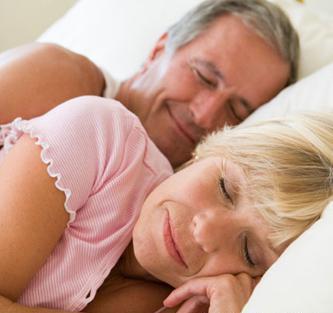When it comes to going to bed early and getting up early, many people will think that it is the habit of the elderly, but have you ever wondered why?

Whenever we talk about age and sleep habits, we always have many fixed thoughts: the park always sees the old people exercising before dawn, the old people can get up at half past four, and the sun goes down to go back to the room to sleep. Young people usually don't go to bed until the wee hours of the morning, and they sleep until noon.
Why is there such a big difference in sleep between the elderly and young people? On the surface of a study, it is precisely this difference in habits that helped our ancestors survive, which is not a bug, this is a new feature of the system.
To know how early humans survived, scientists would often look to modern hunter-gatherer and hunter-gatherer societies. Although these people all live in modern times, their way of life is stuck in ancient times. That said, these hunter-gatherer societies are very similar to the ancient times that researchers envisioned.
In the study published in proceedings of the Royal Society B, the researchers recruited volunteers from hadza, a hunter-gatherer people in Africa who, like their ancestors, hunted baboons and wildebeests, ate starch-rich roots, and collected honey from the nests of African bees during the rainy season. They would spend the night in a campfire or in a small hut built. On top of that, they slept directly on the ground, without artificial light sources and air conditioning, and their lifestyles were no different from those of early humans.
The researchers recruited thirty-three volunteers ages twenty to sixty who would wear sleep monitors for twenty days. They found that the Hadza people did not sleep at the same time. Volunteers, ages fifty or sixty, go to bed at eight o'clock in the evening, usually up at six o'clock in the morning. People in their twenties and thirties usually don't go to bed until 11 o'clock in the evening and sleep until seven o'clock in the morning. Most volunteers wake up at night, either going to the bathroom or caring for crying children.
We wouldn't be surprised that Hadza people go to bed so early. After all, our grandparents were like that too. But there was something different: Of the 220 hours of observation, only 18 minutes were spent, and all 33 participants were asleep. On average, at least one-third of people are awake at any given time.
The researchers believe that this staggered way of sleeping helped the ancestors survive. Because danger can occur at any time, if some people are awake, they can prevent danger. This setting also does not require a vigil. Of course, modern society does not need vigils, but it is not a bad thing that the elderly cannot sleep after 7 a.m. This is just a new feature in human evolution over two thousand years.